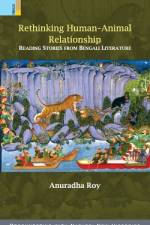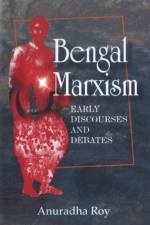- Early Discoveries & Debates
av Anuradha Roy
729
Everywhere, as the author states, capitalism is triumphant and Marxism seems irrelevant''. Yet, not that long ago, many had thought that capitalism would collapse, owing to its own inherent contradictions, and be replaced by a just and egalitarian world order, following the ideals of Marxism. Anuradha Roy argues that it is important to understand this failure at the very roots, which were responsible for a huge gap between Marxism''s promise and practice, leading to its downfall. A communist party, the CPI (M) had been elected in Bengal and ruled for 34 years until it came to an abrupt end in 2011, now on its way to disappearing from the public space all over India. Yet India has much poverty and deprivation still; remaining fertile ground for ideas of equality and social justice. This book, on Marxian thought in Bengal rather than a history of the Marxist movement, discusses the different shades of Bengal Marxism, also including oppositional views. The Marxists believed that the revolution would take place in the realm of culture, narrowly defined, creating an unbridgeable distance from the masses. Many of the sources have been taken from well-known Bengali journals, not available in English, earlier. Roy points out that it was the non-Marxist intellectuals who did justice to Marxism by acknowledging its possibilities and questioning its inadequacies. The author discusses how many scholars have reinvented Marxism as a modifier to disciplines like literature, history, sociology and political science, often combining Marxism with postmodernism. Roy argues that if we think of Marxism as a tradition, not as a doctrine offering an all-embracing explanation of the past and the present and capable of predicting the future, we shall derive much valuable inspiration from it.






